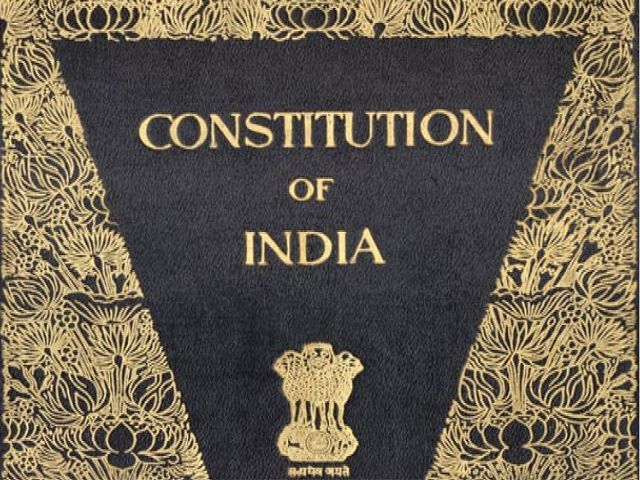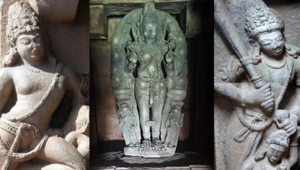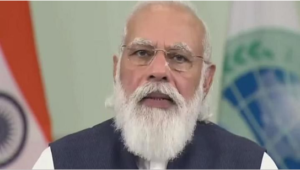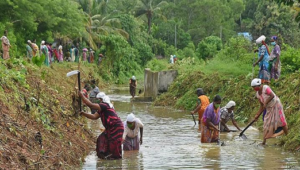
Here is the list of 80 most important articles of the Indian Constitution :-
1. Article No. 1:- Name and territory of the Union
2. Article No. 3:- Formation of new states and alteration of areas, boundaries or names of existing states
3. Article No. 13:- Laws inconsistent with or in derogation of the Fundamental Rights
4. Article No. 14:- Equality before law
5. Article No. 16:- Equality of opportunity in matters of public employment
6. Article No. 17:- Abolition of untouchability
7. Article No. 19:- Protection of certain rights regarding freedom of speech, etc.
8. Article No. 21:- Protection of life and personal liberty
9. Article No. 21A:- Right to elementary education
10. Article No. 25:- Freedom of conscience and free profession, practice and propagation of religion
11. Article No. 30:- Right of minorities to establish and administer educational institutions
12. Article No. 31C:- Saving of laws giving effect to certain Directive Principles
13. Article No. 32:- Remedies for enforcement of Fundamental Rights including writs
14. Article No. 38:- State to secure a social order for the promotion of welfare of the people
15. Article No.40:- Organisation of village panchayats
16. Article No. 44:- Uniform Civil Code for the citizens
17. Article No. 45:- Provision for early childhood care and education to children below the age of 6 years.
18. Article No. 46:- Promotion of educational and economic interests of scheduled castes, scheduled tribes and other weaker sections
19. Article No. 50:- Separation of judiciary from executive
20. Article No. 51:- Promotion of international peace and security
21. Article No. 51A:- Fundamental Duties
22. Article No. 72:- Powers of President to grant pardons, suspend, remit or commute sentences in certain cases
23. Article No. 74:- Council of Ministers to aid and advice the President
24. Article No. 76:- Attorney-General of India
25. Article No. 78:- Duties of prime minister as respects the furnishing of information to the President, etc.
26. Article No. 110:- Definition of Money Bills
27. Article No. 112:- Annual Financial Statement (Budget)
28. Article No. 123:- Power of President to promulgate ordinances during recess of Parliament
29. Article No. 143:- Power of President to consult Supreme Court
30. Article No. 148:- Comptroller and Auditor-General of India
31. Article No. 149:- Duties and powers of the Comptroller and Auditor-General of India
32. Article No. 155:- Appointment of the Governor
33. Article No. 161:- Power of Governor to grant pardons, etc., and to suspend, remit or commute sentences in certain cases
34. Article No. 163:- Council of ministers to aid and advice the Governor
35. Article No. 165:-Advocate-General of the state
Which British Laws are still used in India
36. Article No. 167:- Duties of Chief Minister with regard to the furnishing of information to the Governor, etc.
37. Article No. 168:- Constitution of Legislatures in the states
38. Article No. 169:- Abolition or creation of Legislative Councils in the states
39. Article No. 170:- Composition of Legislative Assemblies in the states
40. Article No. 171:- Composition of Legislative Councils in the states
41. Article No. 172:- Duration of State Legislatures
42. Article No. 173:- Qualification for membership of the State Legislature
43. Article No. 174:- Sessions of the State Legislature, prorogation and dissolution
44. Article No. 178:- Speakers and Deputy Speaker of the Legislative Assembly
45. Article No. 194:- Powers, privileges and immunity of Advocate-General
46. Article No. 200:- Assent to bills by governor (including reservation for President)
47. Article No. 202:-Annual financial statement of the State Legislature
48. Article No. 210:- Language to be used in the State Legislature
49. Article No. 212:- Courts not to inquire into proceedings of the State Legislature
50. Article No. 213:- Power of governor to promulgate ordinances during recess of the State Legislature
51. Article No. 214:- High courts for the states
52. Article No. 217:-Appointment and the conditions of the office of the judge of a High Court
53. Article No. 226:- Power of high courts to issue certain writs
54. Article No. 239AA:- Special provisions with respect to Delhi
55. Article No. 243B:- Constitution of Panchayats
56. Article No. 243C:- Composition of Panchayats
57. Article No. 243G:- Powers, authority and responsibilities of Panchayats
58. Article No. 243K:- Elections to the Panchayats
59. Article No. 249:-Power of Parliament to legislate with respect to a matter in the State List in the national interest
60. Article No. 262:- Adjudication of disputes relating to waters of inter-state rivers or river valleys
61. Article No. 263:- Provisions with respect to an inter-state council
62. Article No. 265:- Taxes not to be imposed save by authority of law
63. Article No. 275:- Grants from the Union to certain states
64. Article No. 280:- Finance Commission
65. Article No. 300:- Suits and proceedings
66. Article No. 300A:- Persons not to be deprived of property save by authority of law (Right to property)
67. Article No. 311:- Dismissal, removal or reduction in rank of persons employed in civil capacities under the Union or a state.
68. Article No. 312:- All-India Services
69. Article No. 315:- Public Service Commission for the Union and for the states
70. Article No. 320:- Functions of Public Service Commissions
71. Article No. 323-A:- Administrative Tribunals
72. Article No. 324:- Superintendence, direction and control of elections to be vested in an Election Commission
73. Article No. 330:- Reservation of seats for scheduled castes and scheduled tribes in the House of the People
74. Article No. 335:- Claims of Scheduled Castes and Scheduled Tribes to services and posts
75. Article No. 352:- Proclamation of Emergency (National Emergency)
76. Article No. 356:- Provisions in case of failure of constitutional machinery in states (President’s Rule)
77. Article No. 360:- Provisions as to Financial Emergency.
78. Article No. 365:- Effect of failure to comply with or to give effect to, directions given by the Union (President’s Rule)
79. Article No. 368:- Power of Parliament to amend the Constitution and procedure therefore
80. Article No. 370:-Temporary provisions with respect to the state of Jammu and Kashmir












